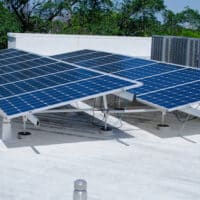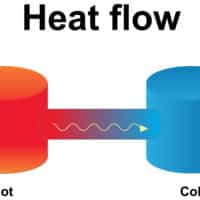Adaptive HVAC Technologies for Arizona’s Microclimates

How do you maintain comfort in a state as climate-diverse as Arizona? From Phoenix’s blistering desert heat to Sedona’s refreshing mountain air, Arizona’s extreme temperature swings demand more than basic solutions. Traditional HVAC systems often fail to adapt, leaving homes struggling with inconsistent temperatures, poor air quality, and rising energy bills.
Advanced HVAC technologies transform this challenge into an opportunity. These systems intelligently adjust to temperature changes, humidity levels, and environmental conditions unique to each region. By ensuring precision climate control, they deliver more than comfort; they optimize energy use, cut costs, and support sustainability. For Arizona homeowners, investing in modern HVAC technologies is no longer optional; it is the smart, long-term solution to thriving in one of the most dynamic climates in the nation.
How Adaptive HVAC Systems Transform Comfort and Efficiency
Arizona’s climate presents a unique challenge for homeowners. With Phoenix’s sweltering desert days and Sedona’s brisk, unpredictable nights, maintaining a consistent indoor environment is no small feat. Traditional HVAC systems, designed for static conditions, simply cannot handle the state’s wide-ranging temperatures and humidity levels. That is where adaptive HVAC technologies step in.
These intelligent systems dynamically respond to environmental changes, ensuring precision comfort in any weather. Equipped with variable-speed compressors, advanced thermostats, and integrated sensors, adaptive HVAC technologies analyze conditions in real time. They provide powerful cooling during Phoenix’s intense summer heat and switch effortlessly to light heating as temperatures drop at night. In Sedona, they balance daytime warmth and cool evenings without overworking or wasting energy.
The benefits extend beyond comfort. Adaptive HVAC systems minimize energy consumption by operating only when and where they’re needed. This efficiency slashes utility bills and reduces environmental impact. Advanced air quality features, like pollutant sensors and HEPA filters, ensure cleaner, healthier air—a critical advantage in Arizona’s dusty and allergen-prone regions.
For Arizona homeowners, adaptive HVAC systems are more than a modern convenience—they’re essential. These technologies transform living spaces, delivering unmatched comfort, energy savings, and long-term reliability in a climate as demanding as it is diverse.

Smart Thermostats and IoT Integration
In Arizona’s extreme and diverse climates, smart thermostats and IoT-enabled HVAC technologies are transforming how homeowners manage indoor comfort. These intelligent solutions do not just control temperatures—they learn, adapt, and optimize energy use for maximum efficiency. For a state where cooling costs dominate energy bills, these technologies offer unmatched value and control.
Smart Thermostats: The Foundation of Energy Efficiency
Smart thermostats adapt to your routine, adjusting temperatures automatically to reduce energy waste. They use advanced algorithms to anticipate your needs, ensuring comfort when you’re home and efficiency when you’re away. In Phoenix, they can pre-cool your home before the day’s heat peaks, while in Sedona, they conserve energy during cool evenings. With smart thermostats, you gain precision climate control while saving money.
IoT Integration: The Future of Connected Comfort
IoT-enabled HVAC systems link your smart thermostat to a network of devices, enabling real-time monitoring and remote adjustments. From your smartphone, you can fine-tune settings, track energy consumption, and receive maintenance alerts. During Arizona’s hottest days, these systems preemptively cool your home before you arrive, ensuring comfort without energy waste. In Sedona, they can regulate heating on chilly nights with minimal effort.
Tailored Solutions for Arizona’s Climate Challenges
Arizona’s climate demands adaptive solutions, and IoT-connected HVAC systems deliver. By dynamically responding to temperature, humidity, and air quality changes, these technologies keep homes comfortable while conserving energy. They also improve air quality, filtering dust and allergens common in Arizona’s dry and windy conditions. Additionally, proactive system alerts extend HVAC lifespan by addressing maintenance needs early.
Smart thermostats and IoT integration redefine what it means to live comfortably and sustainably in Arizona. For homeowners, these technologies are more than upgrades—they’re essentials for thriving in the state’s extreme climate.
Energy-Efficient Heat Pumps
Arizona’s climate extremes, from Phoenix’s searing heat to Sedona’s chilly nights, demand a versatile and efficient solution for year-round comfort. Energy-efficient heat pumps, a cornerstone of modern HVAC technologies, deliver both heating and cooling with unmatched adaptability, making them a smart choice for homeowners across the state.
Dual Functionality for Year-Round Comfort
Heat pumps excel by transferring heat rather than generating it, ensuring energy-efficient performance. In Phoenix’s brutal summers, they expel indoor heat, cooling your home effectively without the high energy consumption of traditional air conditioning. In Sedona’s colder months, they reverse this process, drawing heat from the outdoor air to warm your home—even in cooler temperatures. This dual-purpose operation eliminates the need for separate systems, simplifying maintenance and reducing energy costs.
Perfect Fit for Arizona’s Climate Variations
Arizona’s diverse climate demands adaptable solutions, and heat pumps rise to the occasion. Advanced HVAC technologies, including inverter-driven heat pumps, allow these systems to adjust their output dynamically based on real-time conditions. Whether cooling through triple-digit heatwaves or gently warming during desert winters, they maintain comfort without wasting energy.
Sustainability and Cost-Effective Benefits
Heat pumps not only lower utility bills but also reduce environmental impact. By consuming less energy than conventional systems, they decrease greenhouse gas emissions. Additionally, many energy-efficient models qualify for rebates and tax incentives, making them an affordable upgrade for long-term savings. Quiet operation, low maintenance needs, and longer lifespans further enhance their value for Arizona homeowners.
Energy-efficient heat pumps, powered by cutting-edge HVAC technologies, are essential for thriving in Arizona’s challenging climate. Their ability to adapt, conserve energy, and provide sustainable comfort makes them a top-tier investment for any home.
Variable Refrigerant Flow (VRF) Systems
Creating the perfect indoor environment in a home with diverse spaces and varying temperature needs requires advanced HVAC technologies. Variable Refrigerant Flow (VRF) systems are revolutionizing climate control by providing unparalleled precision, efficiency, and adaptability. These systems are engineered to deliver customized heating and cooling for every corner of a home, making them a practical and sustainable solution.
How VRF Technology Redefines Comfort
VRF systems operate by circulating refrigerant through multiple indoor units, each capable of independent temperature control. Unlike conventional systems that treat the entire home as one zone, VRF technology allows individual rooms or areas to receive tailored heating or cooling. For instance, a VRF system can cool sunlit rooms while simultaneously warming shaded spaces. This targeted approach ensures no energy is wasted, enhancing both comfort and efficiency.
Efficiency in Managing Temperature Zones
One of the biggest advantages of VRF systems is their ability to manage temperature zones with precision. This flexibility is ideal for homes with varying sun exposure, multiple floors, or complex layouts. Bedrooms can remain cool for sleeping while living areas are kept comfortable for daily activities—all without over-conditioning unoccupied spaces. This zoned control dramatically reduces energy consumption while ensuring consistent comfort throughout the home.
Sustainability and Long-Term Value
VRF systems embody the principles of modern sustainability. By delivering energy precisely where it is needed, they lower utility bills and reduce greenhouse gas emissions. Their quiet operation, modular design, and reduced wear and tear extend the system lifespan, making them a reliable, forward-thinking investment. Additionally, VRF systems can be easily expanded or upgraded, ensuring they grow with your home’s needs.
Variable Refrigerant Flow systems combine cutting-edge HVAC technologies with energy efficiency and adaptability, making them an invaluable tool for modern homeowners. Their ability to provide targeted comfort while conserving energy sets a new standard for sustainable climate control solutions.

Advanced Air Filtration and Indoor Air Quality
Air quality is one of the most critical factors affecting overall health and comfort in any home. Modern HVAC technologies are redefining how homeowners address this concern, integrating advanced air filtration systems that remove harmful particles and pathogens from the air. For Arizona residents, where dust storms, allergens, and dry air are common, investing in advanced indoor air quality solutions is essential.
Why Air Quality Matters in HVAC Systems
HVAC systems are not just for heating and cooling—they’re your home’s first line of defense against indoor pollutants. Without effective filtration, contaminants like dust, pet dander, mold spores, and even bacteria can circulate throughout your home, triggering allergies and respiratory issues. By incorporating advanced air filtration, today’s HVAC technologies create healthier, cleaner environments, especially in regions like Arizona, where environmental irritants are widespread.
HEPA Filters: The Gold Standard for Cleaner Air
High-efficiency particulate Air (HEPA) filters are among the most reliable tools in improving air quality. Designed to trap 99.97% of airborne particles, HEPA filters capture even the tiniest pollutants, including pollen and fine dust from Arizona’s arid climate. Their inclusion in HVAC systems ensures that the air circulating through your home is fresh, clean, and free from harmful particles that can impact health.
UV-C Light Purification: A Game-Changer in Air Safety
UV-C light technology is another powerful innovation in HVAC systems. These ultraviolet lights neutralize airborne bacteria, viruses, and mold spores, creating a safer and healthier indoor environment. Installed within HVAC systems, UV-C lights disinfect the air as it passes through, offering an extra layer of protection for families. This technology is especially valuable during flu season or for those with weakened immune systems.
The Future of Indoor Air Quality in HVAC Technologies
Pairing HEPA filtration with UV-C purification is a game-changing approach to indoor air quality. Together, these technologies create a comprehensive barrier against pollutants, allergens, and harmful microorganisms. Modern HVAC systems equipped with these features deliver far more than temperature control—they actively improve the health and safety of your home’s environment.
For Arizona residents, investing in advanced air filtration systems is not just about comfort; it is about creating a healthier, more sustainable living space. With cutting-edge HVAC technologies, homeowners can enjoy fresher air, reduced health risks, and a higher quality of life.
Solar-Powered HVAC Solutions
Solar energy is transforming the way homes stay comfortable, offering an efficient and eco-friendly alternative to traditional power sources. Solar-powered HVAC systems integrate renewable energy with advanced HVAC technologies, creating a sustainable solution that meets both heating and cooling needs. In Arizona, where sunshine is abundant and energy demands are high, these systems provide a practical path to energy independence.
The Mechanics of Solar-Powered HVAC Systems
Solar-powered HVAC systems use photovoltaic (PV) panels to harness sunlight, converting it into electricity to power air conditioning, heating, and ventilation units. Unlike conventional systems that rely entirely on the grid, solar-powered HVAC technologies store excess energy in batteries, ensuring uninterrupted performance even after sunset. During peak sunlight hours, these systems can run entirely on solar power, significantly reducing electricity bills while maintaining consistent comfort.
Arizona’s Perfect Climate for Solar HVAC
Arizona’s sun-soaked climate makes it one of the most favorable locations for solar-powered HVAC adoption. With more than 300 sunny days annually, homeowners can generate ample solar energy to power their HVAC systems year-round. State incentives, including tax credits and rebates, further enhance the feasibility of transitioning to solar-powered HVAC technologies, offsetting upfront costs and accelerating long-term savings.
Benefits That Go Beyond Energy Savings
Solar-powered HVAC systems offer financial, environmental, and practical advantages. Lower electricity bills start immediately, while the reduced dependence on fossil fuels contributes to a cleaner environment. These systems also enhance property values and appeal to environmentally conscious buyers. Quiet operation, reduced maintenance needs, and extended lifespans add to their overall appeal, making them an investment in both comfort and sustainability.
Future-Proofing Your Home
While installation costs can seem steep, advancements in solar technology and decreasing equipment prices have made solar-powered HVAC systems more accessible than ever. For Arizona homeowners, the combination of generous state incentives and long-term energy savings ensures a return on investment. Over time, the system pays for itself while significantly reducing a home’s carbon footprint.
Solar-powered HVAC systems represent the perfect fusion of renewable energy and cutting-edge HVAC technologies. For Arizona homeowners, investing in these systems means embracing a sustainable future, achieving energy independence, and creating a healthier, more comfortable living environment.
Predictive Maintenance with AI and Machine Learning
Predictive maintenance is reshaping the landscape of HVAC technologies by harnessing the power of artificial intelligence (AI) and machine learning. These advanced systems analyze real-time data from HVAC components, detecting inefficiencies or potential failures before they disrupt your comfort. For Arizona homeowners, where HVAC systems operate under relentless conditions, this proactive approach ensures seamless performance and cost-effective maintenance.
AI-driven sensors constantly monitor critical components like compressors, filters, and airflow, identifying subtle signs of wear or irregularities. Instead of waiting for breakdowns, these systems send timely alerts for preventive action, reducing the risk of costly repairs or emergency service calls. For example, catching a minor airflow issue early prevents energy waste and avoids more extensive damage.
Beyond reliability, predictive maintenance enhances energy efficiency by ensuring HVAC technologies run at peak performance. This translates to lower utility bills, fewer interruptions, and a longer system lifespan. For Arizona’s extreme climate, predictive maintenance is the smarter, more sustainable way to keep your HVAC system operating flawlessly.
Choosing the Right Adaptive HVAC System for Your Needs
Selecting the perfect adaptive HVAC system requires understanding your home’s unique needs and Arizona’s demanding climate. Modern HVAC technologies offer advanced solutions, but finding the right fit ensures maximum efficiency and comfort.
Start by assessing your region’s climate challenges. In Phoenix, focus on systems designed to combat extreme heat efficiently. For Sedona, prioritize models with adaptable heating and cooling for fluctuating temperatures. Look for energy-efficient features like high SEER ratings and zone-specific control for tailored comfort.
Consider systems that enhance air quality, such as those equipped with HEPA filters and UV-C light purification. If sustainability is a goal, solar-powered HVAC technologies are a smart option, leveraging Arizona’s abundant sunshine for reduced energy costs. Lastly, prioritize systems offering predictive maintenance to prevent breakdowns and extend system life.
Consulting an HVAC professional ensures your chosen system aligns with your needs, delivering the perfect balance of efficiency, reliability, and advanced comfort.
FAQS About HVAC Technologies
-
What are adaptive HVAC technologies?
Adaptive HVAC technologies are advanced climate control systems that adjust automatically to real-time environmental changes, such as temperature, humidity, and air quality. Using features like sensors and AI-driven controls, these systems ensure optimal comfort, improved efficiency, and reduced energy waste, making them essential for Arizona’s extreme climate variations.
-
How do smart thermostats contribute to energy efficiency?
Smart thermostats learn user habits and adjust temperature settings to save energy when spaces are unoccupied or during sleep hours. These devices also provide real-time feedback on energy use, helping homeowners optimize their HVAC technologies to reduce utility bills without sacrificing comfort.
-
Are heat pumps effective in both hot and cold climates?
Yes, modern heat pumps perform exceptionally well in both hot and cold conditions. During summer, they efficiently cool by transferring indoor heat outside. In winter, even in cooler climates like Sedona, they extract warmth from outdoor air to heat homes, providing energy-efficient comfort year-round.
-
What is the role of AI in HVAC maintenance?
AI enhances HVAC maintenance by monitoring performance and identifying inefficiencies or potential failures. Predictive maintenance ensures timely repairs, preventing costly breakdowns and optimizing system efficiency. This technology reduces downtime and extends the lifespan of HVAC technologies.
-
How can homeowners in Arizona choose the right HVAC system for their area?
Arizona homeowners should prioritize energy-efficient systems tailored to their region’s climate. For Phoenix, focus on systems that combat extreme heat. In Sedona, look for solutions that balance heating and cooling for year-round comfort. Consulting an HVAC professional ensures a system meets specific needs.
Upgrade to innovative HVAC technologies perfectly suited to Arizona’s challenging climate. At One Hour Air Conditioning & Heating of Phoenix, AZ, we create solutions as unique as your home. Contact us today and take the first step toward superior comfort and efficiency!








